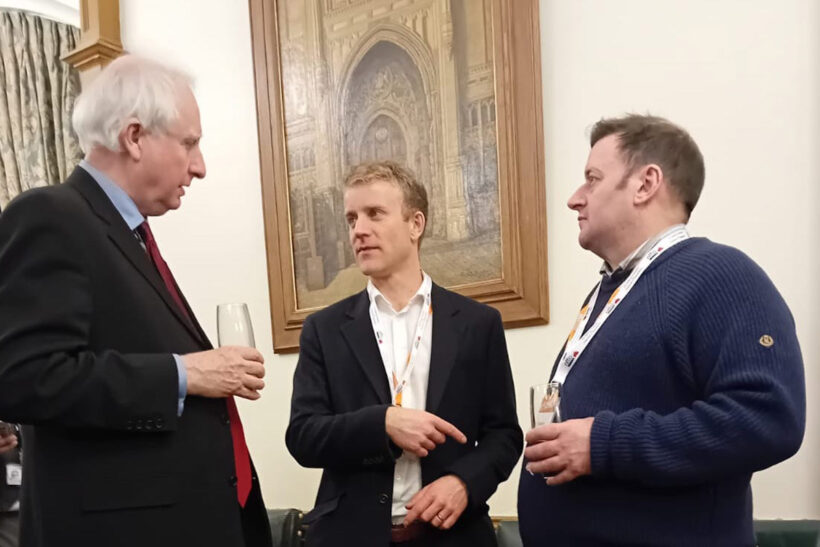The National Federation of Fishermen’s Organisations (NFFO) hosted a significant meeting in the Churchill Room at the Houses of Parliament, bringing together MPs, members of the House of Lords, PO representatives and active fishermen from across the country.
The event provided an opportunity for newly elected MPs with an interest in fisheries – particularly coastal MPs and those in ministerial and shadow ministerial positions – to engage directly with fisheries stakeholders, understand pressing concerns and build relationships for future collaboration.
Chris Ranford, chair of the NFFO and CEO of the Cornish FPO, opened the event, followed by food security minister Daniel Zeichner, who reaffirmed the government’s commitment to working with the fishing industry. He highlighted the challenge of spatial squeeze, balancing the need for food security through fishing with the need to secure energy security through increasing offshore wind development.
NFFO chief executive Mike Cohen also addressed the gathering, stressing the importance of treating fishing as an industry rather than solely a conservation concern. He emphasised that while the sector recognises the need for environmental and energy initiatives, compromises must be carefully considered to protect livelihoods. “We can’t eat turbines,” he remarked, advocating a balanced approach that does not trade off the interests of fishermen without full consideration of the consequences.
He also pointed out that once fishing communities lose their skills and jobs, they do not easily return. “If a fishing ground is taken away for a wind farm or a conservation area, we need to ensure that the decision is truly worth the trade-off,” he said. He urged MPs to remain conscious of the long-term impact of their decisions, particularly as the UK renegotiates the TCA with the EU.

Despite these concerns, he ended on a positive note, expressing optimism about the high level of engagement from parliament. He noted that recent fisheries debates have been productive, and praised MPs like Minister Zeichner for their proactive approach to understanding the industry. “We’re very grateful. As an industry, we are keen to talk, discuss and collaborate. We aren’t seeking exemptions or special treatment, just fair consideration,” he concluded.
The meeting continued with further discussions between MPs, industry representatives and skippers, which provided a platform for fishermen to voice their concerns directly to MPs and Defra officials, helping them better understand the real-world impact of their decisions. The event went on longer than expected, branching out into multiple one-to-one conversations.
Skipper Ian Hurford of the Sophie Jane of Ladram raised concerns about the economic and environmental waste caused by rigid and ineffective regulations, such as the low bass bycatch allowance for demersal trawlers. The positive development of rebounding bass populations means that this allowance is often unintentionally exceeded, necessitating dead discarding – fish that he argued should be used to feed the nation. He went on to praise Minister Zeichner for actively listening and engaging on these issues and demonstrating a willingness to drive meaningful policy changes.
Speaking after the event, Mike Cohen said: “It was particularly good to see the many one-to-one conversations that took place between working fishermen and the MPs and senior Defra officials present after the main speeches, where they could really exchange views, and also build relationships for future contact.
“We also confirmed a further meeting with the cabinet minister who will be overseeing renegotiation of the TCA, Nick Thomas-Symonds, who attended the reception, and listened to our initial concerns about this.
“It is clear, too, from the many discussions that took place, that our message – that decisions on siting new wind developments, or designating new MPAs that may see fishing restricted, will have life-changing impacts on working fishermen – hit home.
“Whilst this will not stop offshore development, it will at least mean that decisions are made with MPs and officials acknowledging and taking responsibility for the direct impacts they are having on fishermen and the food that they produce.”
This story was taken from the latest issue of Fishing News. For more up-to-date and in-depth reports on the UK and Irish commercial fishing sector, subscribe to Fishing News here or buy the latest single issue for just £3.50 here.
Sign up to Fishing News’ FREE e-newsletter here.







